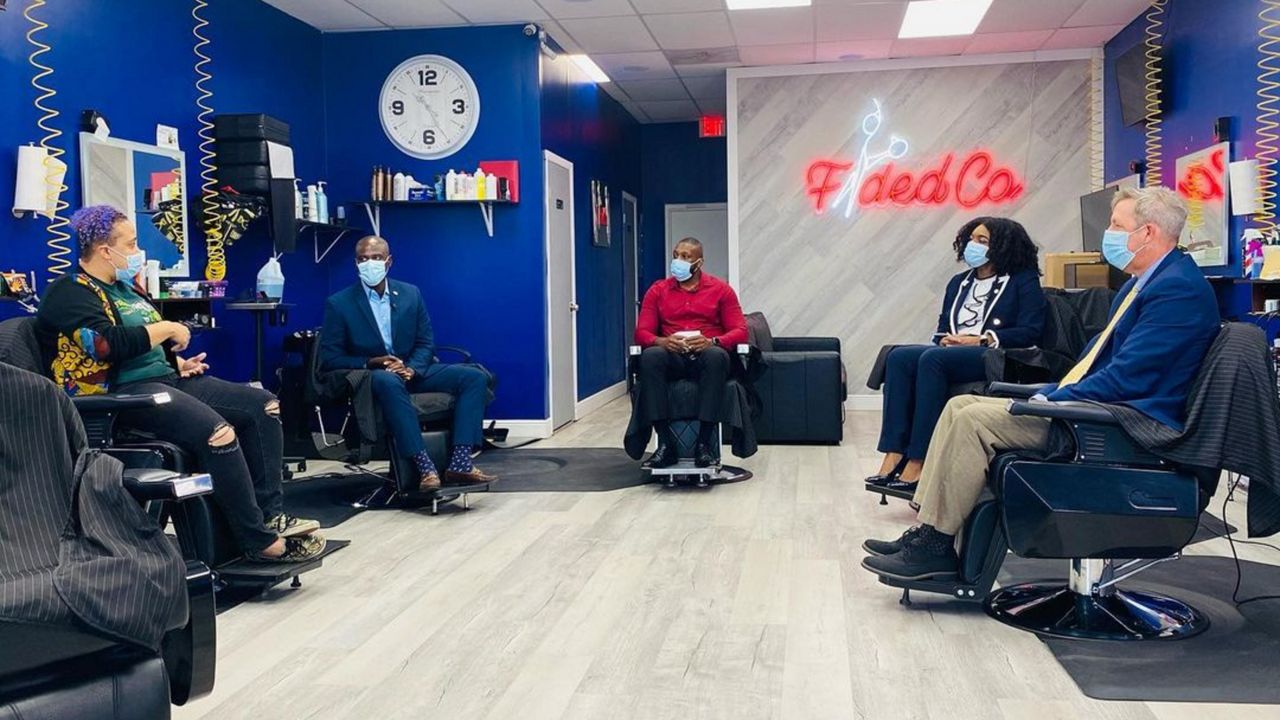CLEARWATER, Fla. — Black mothers are twice as likely to receive in-hospital formula introduction than white mothers according to a study from the American Academy of Pediatrics.
Studies show Black women are less likely to breastfeed.
But why is that? Some experts point to racism and the social determinants of health which includes economic barriers. One of the other reasons given involves trauma passed down generations. Experts say the impacts are still being felt today from a time when enslaved Black women were forced to be breastfeed their slaveowner’s children instead of their own.
Knowing that, groups across the country are working to encourage more Black women to breastfeed. Florida Blue is partnering with March of Dimes and Aspire to host a forum on Oct. 5 from 6 p.m. to 7:30 p.m., Our Mother’s Milk: Black Breastfeeding Forum. The forum will be held at the Florida Blue Center at 2567 Countryside Blvd. Suite 1, Clearwater, 33761.
New mother Mallory Davis plans to attend the forum. For the last six months, she has been getting a crash course in feeding time for her baby, McKinley.
“I always knew I wanted to breastfeed. The benefits, the bonding. I knew that was something I wanted to do with my daughter,” she said.
Her sweet, cuddly little six-month-old is now getting solids, but breast milk is her main source of food.
“So, she’ll drink and you can feel it,” Davis said. “You can feel when your body lets down and then when she’s just there and just wants to be on you, she will put her hand on me and just look at me. It’s a beautiful bonding experience.”
Breastfeeding is something that wasn’t always easy for Davis.
“I think there’s a lot of factors to breastfeeding. Breastfeeding is a luxury and it’s natural, so you don’t think of it as a luxury. It’s time consuming. You’re always hungry, you’re tired,” she said.
For Davis and other families like hers, breastfeeding isn’t something they talked about. Her mother breastfed, but for her grandmother it was a foreign concept. “She was watching me breastfeed when she came over to see the baby and she was like, ‘How do you do this?’ Six kids and she never breastfed,” Davis said.
That didn’t come as a surprise to her, knowing about studies that show that Black mothers are less likely to breastfeed.
It’s something Amy Bohler with Champions for Children is aware of, too.
“We know that it’s nothing inherently wrong with the Black women themselves but it is a result of the racism that they face,” Bohler said. “All women face barriers to breast feeding, but we know Black women face extra barriers with breastfeeding.”
Bohler is one of the lactation consultants who helps train nursing mothers on the proper ways to breastfeed their babies.
“If a mom comes to us and they’re having trouble with breastfeeding, we’ll work with them to see how they can get breastfeeding to be not painful,” she said.
The organization she works for makes sure they reach women of color — emphasizing the benefits to Black mothers and infants with the highest mortality rates.
“It helps babies really reach their genetic potential,” she said. “It can reduce their risk of SIDS in the early days, reduce the risk of obesity, it helps reduce the risk of allergies and respiratory issues with babies.”
That’s what Davis said makes breastfeeding worth it for her sweet, healthy baby girl.






